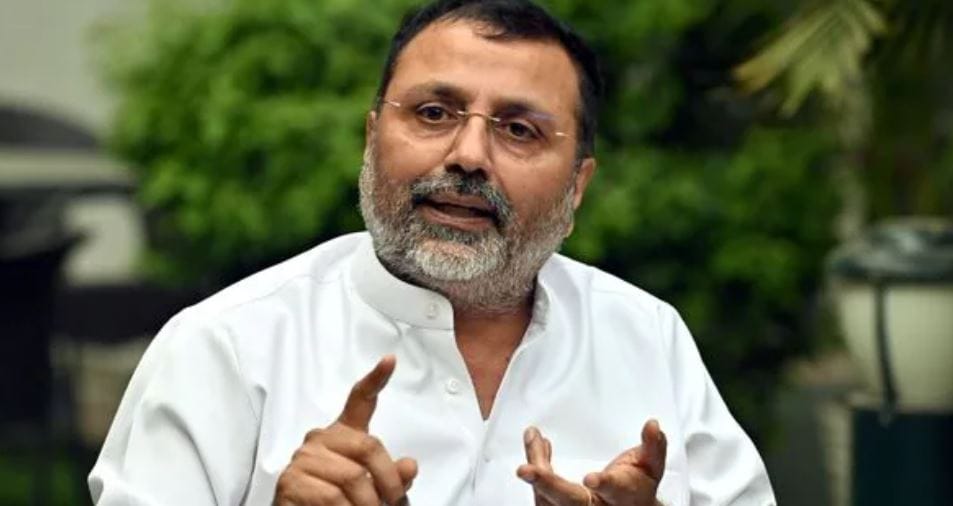Nishikant Dubey’s Controversial Call for NRC and Concerns Over Tribal Decline
BJP Member of Parliament Nishikant Dubey has recently stirred significant debate with his call for the implementation of the National Register of Citizens (NRC). Addressing the Lok Sabha, Dubey expressed grave concerns over what he perceives as a decline in the tribal population in his home state of Jharkhand and an increase in infiltration from Bangladesh. His statements have ignited a firestorm of political and social discourse, revealing deeper issues within regional and national policies.
Declining Tribal Populations: A Statistical and Societal Concern
During his speech, Dubey highlighted that the tribal population in Jharkhand has decreased by approximately 10% since the formation of the state. He cited alarming statistics showing that the proportion of tribal people in Santhal Pargana has dropped from 36% to 26%. This demographic shift, according to Dubey, is indicative of broader issues affecting tribal communities. He criticized the ruling Jharkhand Mukti Morcha (JMM) for its perceived inaction, alleging that the decrease in tribal numbers is exacerbated by the lack of effective policies to protect and support these communities.
Dubey’s comments underscore the ongoing struggles faced by tribal populations in India. The decline in tribal numbers is not merely a statistical concern but also a reflection of broader socio-economic challenges. Issues such as migration, displacement, and inadequate government support contribute to the precarious situation of these communities. The call for an NRC, in this context, is seen as an attempt to address these challenges through a national framework.
Allegations of Rising Infiltration and Its Implications
Dubey’s speech also brought to light his concerns about increasing infiltration from Bangladesh. He alleged that this influx has significant implications for the demographic and socio-political landscape of Jharkhand. According to Dubey, the rising number of infiltrators is impacting local communities and exacerbating existing tensions. He pointed to incidents where tribal women were reportedly marrying Bangladeshi men, a situation he described as problematic and indicative of broader socio-cultural shifts.
The implications of such allegations are multifaceted. On one hand, they reflect concerns about border security and migration policies. On the other hand, they also touch upon sensitive issues of community identity and interfaith relations. Dubey’s remarks suggest that he sees the NRC as a necessary measure to address these concerns, aiming to safeguard the cultural and demographic integrity of Indian states.
Controversial Statements and Their Political Ramifications
Dubey’s speech did not only focus on demographic issues but also included controversial statements regarding interfaith marriages and regional conflicts. He mentioned instances where tribal women had married Bangladeshi men, framing these marriages within a broader narrative of cultural erosion. His comments on the alleged atrocities committed by people from Malda and Murshidabad districts in West Bengal further added to the controversy.
These statements have significant political ramifications. By highlighting interfaith marriages and regional conflicts, Dubey has stirred communal sentiments and polarized opinions. His call for making Malda and Murshidabad Union Territories and implementing the NRC reflects a broader political strategy aimed at addressing perceived threats to national and cultural integrity. However, such statements also risk deepening communal divides and fueling further discord.
The Path Forward: Balancing National Security and Community Integrity
The debate sparked by Dubey’s remarks highlights the complex interplay between national security, community integrity, and socio-political dynamics. Implementing the NRC could potentially address concerns about infiltration and demographic shifts, but it also raises questions about its impact on local communities and interfaith relations. Balancing these factors will be crucial in formulating effective policies that address both security concerns and the needs of vulnerable populations.
Moving forward, it is essential for policymakers to approach these issues with sensitivity and inclusivity. While addressing concerns about infiltration and demographic changes, it is equally important to ensure that policies do not exacerbate communal tensions or undermine the rights and identities of local communities. Engaging in constructive dialogue and adopting a nuanced approach will be key to navigating these complex challenges and fostering national cohesion.
Soumya Smruti Sahoo is a seasoned journalist with extensive experience in both international and Indian news writing. With a sharp analytical mind and a dedication to uncovering the truth, Soumya has built a reputation for delivering in-depth, well-researched articles that provide readers with a clear understanding of complex global and domestic issues. Her work reflects a deep commitment to journalistic integrity, making her a trusted source for accurate and insightful news coverage.



